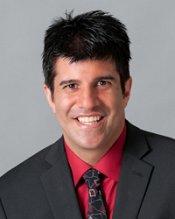Summer Learning: The best advantage you can give your child (Malcolm Gladwell)
By Daryl CapuanoGeneral Education AdviceMalcolm Gladwell’s books are great: The Tipping Point and Blink, put him on the map. But The Outliers, is my favorite, particularly because he addresses the issue of education. Post-pandemic, his advice matters more than ever since I can report anecdotally what all new research is confirming: our children’s education has been devastated since 2020.
Two points for parents to consider:
(1) When reviewing the variety of factors that led to student success, the single factor that most determined student success was how much students worked during the summer
(2) When reviewing students from countries which performed better on international education tests, the length of the student’s school year was the most dominant factor that predicted success.
Under either theory, the amount of work that students did led to greater success.
That should not be a great surprise.
But, as a parent, when you examine the world that your child is currently in and the world that your child faces, there are some clear implications.
You should structure your child’s summer and after-school work environment such that your child does not fall behind either: (1) students in his current school and (2) students in countries that work harder than the US.
Related to the first point:
Gladwell examined a study of children in Baltimore. The study was designed to figure out why wealthier children performed better than students from less affluent backgrounds. Prior to the study, some thought genes or the educational background of the parents would be the determining factors. Neither was most signifcant.
The impoverished children learned at an equal rate as their wealthier counterparts during the school year. For that reason, each group tested nearly equally during the first couple of years of schooling. The difference in achievement started showing up thereafter. That was curious to the researchers. Differences in genes or parental educational background would presumably have an equal effect on 1st graders as 12th graders.
The students were consistently measured to determine how much they improved during the school year and for the most part the findings stayed the same: the parental income of students had no effect during the school year.
But, the achievement gap kept increasing each year. The reason: those from wealthier families learned more in the summer.
So, for example, Student Rich and Student Poor may have had equal achievement at the end of 1st grade. But, Student Rich’s family made him read books, attend enrichment camps, get tutored and generally structured his education in the summer. Student Poor’s family did none of those things.
As the years passed, Student Rich’s summers of enrichment gradually shifted the achievement gap between the two students to significant proportions.
We see something similar in Connecticut
Summer should include fun. Lots of fun! But, the day is long. Some work will not put much of a damper on the beautiful summer. Parents who structure some part of the summer to include academic enrichment are giving their students a huge advantage for next year.
In terms of Gladwell’s other finding, that achievement was far higher in countries where students had longer school years, the implications are clear. US students spend about 180 days in school. Several Asian countries have students in school between 220-240 days per year.
When we did not have such a global workforce, this fact would likely not lead to a great future impact.
As the world has become “flat” (see Thomas Friedman’s excellent work on the interconnected world we now live in), our students are competing against international competition.
Students from other countries are working 20-30% longer each school year. As the years pass, they are outdistancing the normal American school child.
Your child will be facing that competition when he graduates.
It would be wise to take control of your child’s educational structure outside of the school environment.

CEO, The Learning Consultants and Connecticut’s top private education consultant
full bio

